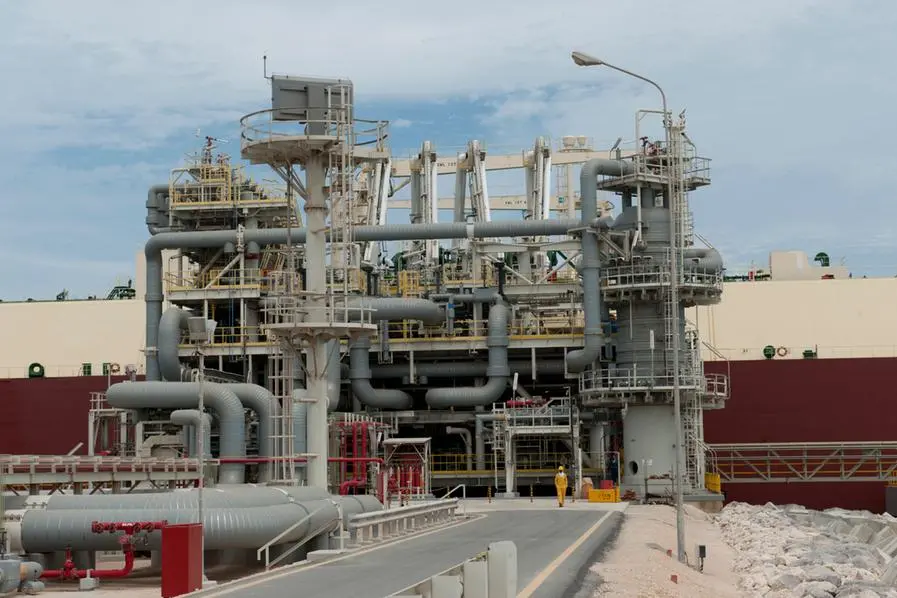PHOTO
Domestic gas consumption in Qatar remained steady at 43.2 bcm in 2023, reveals GECF's just released annual statistical bulletin. Qatar’s marketed natural gas production saw a slight increase in 2023, reaching 170.9 bcm, it said.
Domestic gas consumption in Qatar remained steady at 43.2bn cubic metres (bcm) in 2023, reveals GECF's just released annual statistical bulletin.
Qatar’s marketed natural gas production saw a slight increase in 2023, reaching 170.9 bcm, it said.
In terms of LNG infrastructure, Qatar has seven liquefied natural gas plants with 14 liquefaction trains and a total capacity of 106 bcm/year (77 Mt/year), all operated by Qatargas, the bulletin noted.
In 2023, GECF countries continued to demonstrate their dominance in the natural gas sector, holding more than 69% of the world’s proven reserves, equivalent to almost 145,000 bcm. This unrivalled share underscores the long-term resource security offered by GECF Countries, led by major reserve holders like Russia, Iran, and Qatar.
Collectively, GECF countries contributed 41% of global marketed production, solidifying their role as reliable suppliers to meet global energy demand. In the realm of consumption, GECF countries represent 28% of global domestic consumption.
The lower consumption share, relative to production (28%), highlights GECF’s significant role as net exporters in the natural gas markets. GECF’s influence is particularly pronounced in exports, where they hold 49% and 45% shares of the LNG and pipeline exports respectively.
GECF countries retained their position as leaders in LNG trade, accounting for more than 49% of global LNG exports.
“Qatar remained the top LNG exporter more than 107bcm, catering to growing demand in Asia and Europe,” GECF noted.
Asia’s LNG demand rebounded to 352 bcm, with 47% (167 bcm) supplied by GECF Countries.
Europe increased its LNG imports to 168bcm, with 51% (86bcm) coming from GECF Countries to enhance energy security.
Africa emerged as a key supplier, with countries leveraging their resources to meet global demand like Algeria, Nigeria, and Mozambique which achieved a milestone by entering the LNG market, signalling its growing role in global energy trade and further diversified GECF countries LNG portfolio, while expanded liquefaction capacity (up to 241 mtpy) and a fleet of 155 LNG carriers ensured seamless delivery to global markets.
In 2023, GECF Countries reinforced their global position through significant investments in natural gas infrastructure operating 37 liquefaction plants (70 Trains) with a combined capacity of over 241 mtpy, ensuring reliability and scalability in LNG exports.
The pipeline network, spanning thousands of kilometres, remained a critical component for regional and crossborder gas transportation. GECF Countries continued to optimise their pipeline systems to meet changing trade flows, particularly considering shifting energy policies and geopolitical pressures.
Notable contributors to pipeline stability include Algeria, which sustained exports to Europe, and Russia, which maintains one of the largest pipeline infrastructures globally.
LNG shipping logistics further enhanced GECF’s competitive edge. Member countries collectively operated a fleet of 155 LNG carriers, capable of transporting large volumes across long distances.
These carriers ensured the flexibility and accessibility of natural gas, making LNG a cornerstone of the global energy transition.
The combined strength of liquefaction plants, pipelines and LNG fleets showcases GECF’s commitment to delivering reliable and efficient natural gas supplies, maintaining its position as a leader in the global energy market.
The GECF Annual Statistical Bulletin 2024 showcases the significant impact of forum’s member countries on the global natural gas sector, emphasising key achievements and trends through 2023.
© Gulf Times Newspaper 2022 Provided by SyndiGate Media Inc. (Syndigate.info).





















